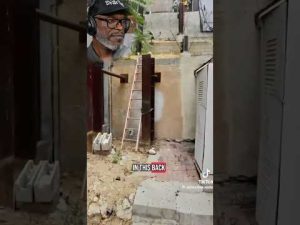In the heart of Manhattan, where the skyline is usually a symbol of ambition and dreams, a tragedy unfolded that has left a city reeling and a country questioning its priorities. On a day like any other, a gunman opened fire inside a bustling office building, resulting in the deaths of four people, including a brave NYPD officer. This is the kind of horrific event that reminds us how fragile life can be and how crucial it is for society to examine its underlying issues—something some people seem far too eager to overlook.
Officer Islam, the officer who was tragically killed, had immigrated from Bangladesh and dedicated himself to serving the city as a member of the NYPD. His story is one of true heroism; he put his life on the line to protect others. This father of two, with another child on the way, paid the ultimate sacrifice. It’s infuriating to see his commitment ended by someone who believed they had the right to sow chaos and devastation.
The shooter, Shane Tamura, decided that the lives of others were his to take, allegedly because of his struggles with mental health issues stemming from CTE. While tragic in its own right, it’s perplexing how often “issues” become a fallback excuse for such heinous behavior. Many people face adversity yet choose not to strut across a plaza like they’re in some twisted action movie. This event should spark a reevaluation of how mental health and gun laws intersect, particularly regarding concealed carry licenses and disclosures about mental stability.
As the investigation unfolds, the debate around police presence and public safety is heating up once again. The days when police officers stood on nearly every street corner, keeping a close eye on happenings, seem to be dwindling, thanks in part to movements that question the role and funding of police forces. Fewer officers on the streets can potentially embolden individuals with ill intentions, knowing the likelihood of immediate confrontation is reduced. Officer Islam’s death is a sobering reminder of the dangers these brave men and women face and the need for a proper law enforcement presence.
The incident also raises questions about building security and preparedness. One would think that in a major city like New York, with its iconic high-rises, there would be more armed security ready to address such threats. Though Officer Islam had municipal authority, it’s alarming to consider what might happen when security is not adequately prepared for quick response, even when the stakes are so high.
This tragedy is not just a grim statistic; it’s about valuing the sanctity of human life. It’s a call for the nation to vie for a society where the good guys—like Officer Islam—are equipped and supported to fight the true evils lurking. Only then can places like New York return to being symbols of hope and inspiration, rather than backdrops for needless violence.







